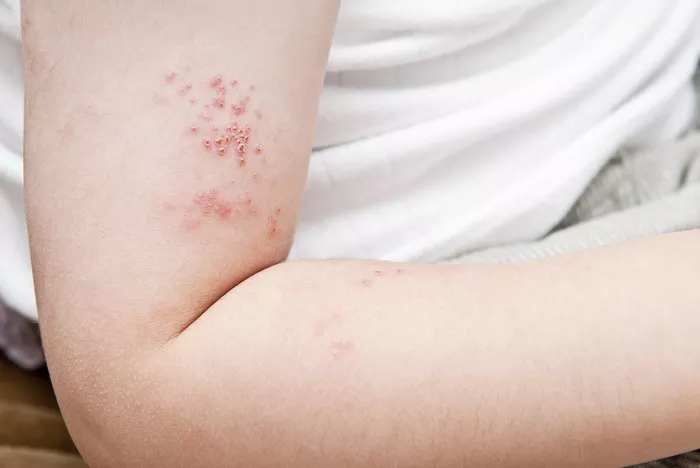Shingles, caused by the varicella-zoster virus, can be an excruciating experience, especially when it affects the delicate tissues of the mouth. This condition, known as oral or oropharyngeal shingles, can make eating a challenging task due to pain, sensitivity, and potential complications. However, maintaining proper nutrition is vital for supporting the body’s immune response and overall well-being during this time. In this article, we’ll explore dietary strategies and suggest foods that are gentle on the mouth yet rich in essential nutrients to help individuals cope with shingles discomfort.
Understanding Shingles in the Mouth
Before delving into dietary recommendations, it’s essential to understand the impact of shingles on oral health. Oral shingles can manifest as painful blisters, lesions, or sores in the mouth, tongue, gums, or throat. These symptoms can make chewing, swallowing, and even speaking uncomfortable or painful.
Moreover, individuals with oral shingles may experience heightened sensitivity to certain foods and beverages. Spicy, acidic, or rough-textured foods can exacerbate pain and irritation, while hot or cold temperatures may further aggravate the affected area. Consequently, adapting one’s diet to accommodate these sensitivities is crucial for maintaining adequate nutrition while managing discomfort.
Nutritional Considerations for Oral Shingles
When designing a diet for oral shingles, several nutritional considerations come into play:
1. Soft and Easily Digestible: Opt for foods that are soft in texture and easy to chew, swallow, and digest. Soft foods reduce the risk of irritation and minimize discomfort during consumption.
2. Nutrient-Dense: Focus on nutrient-dense foods that provide essential vitamins, minerals, and antioxidants to support immune function and aid in the healing process.
3. Hydration: Adequate hydration is paramount, especially when mouth sores may deter individuals from drinking enough fluids. Incorporate hydrating foods and beverages to prevent dehydration and promote oral health.
4. Anti-inflammatory: Select foods with anti-inflammatory properties to help alleviate pain, reduce swelling, and promote tissue healing. These foods can mitigate discomfort and support the body’s natural recovery mechanisms.
Foods to Include
Based on the above considerations, here are some recommended foods for individuals with oral shingles:
1. Soft Fruits: Opt for ripe, soft fruits such as bananas, avocados, melons, and cooked applesauce. These fruits are gentle on the mouth and provide essential vitamins and minerals.
2. Smoothies and Shakes: Blend soft fruits with yogurt, milk, or plant-based milk alternatives to create nutritious smoothies and shakes. These beverages are easy to swallow and can be customized with protein powder, nut butter, or oats for added nutrition.
3. Soups and Broths: Warm, soothing soups and broths are ideal for individuals with oral shingles. Choose homemade or low-sodium varieties packed with vegetables, lean proteins, and whole grains for a nourishing meal.
4. Mashed Vegetables: Cooked and mashed vegetables such as sweet potatoes, carrots, squash, and peas are gentle on the mouth and provide essential vitamins and fiber. Season with herbs and spices for added flavor without the heat.
5. Soft Proteins: Incorporate soft proteins such as scrambled eggs, tofu, fish, and well-cooked poultry into meals. These sources of protein are easier to chew and digest compared to tough meats.
6. Yogurt and Pudding: Creamy yogurt and pudding are excellent options for individuals with oral shingles. Choose plain or low-sugar varieties to avoid potential irritation from added ingredients.
7. Oatmeal and Porridge: Cooked oatmeal or porridge made with milk or water provides a comforting and nourishing breakfast option. Add fruits, nuts, or honey for flavor and additional nutrients.
8. Herbal Teas: Sip on herbal teas such as chamomile, ginger, or peppermint to soothe the throat and promote relaxation. Avoid caffeinated or acidic beverages that may exacerbate discomfort.
Foods to Avoid
While certain foods can provide relief and nourishment, others may exacerbate symptoms or cause further irritation. Foods to avoid or limit when dealing with oral shingles include:
1. Spicy Foods: Hot peppers, chili powder, and spicy sauces can irritate mouth sores and exacerbate discomfort.
2. Acidic Foods: Citrus fruits, tomatoes, vinegar, and acidic beverages like orange juice can sting and irritate sensitive mouth tissues.
3. Crunchy or Hard Foods: Hard candies, chips, pretzels, and raw vegetables can be abrasive and painful to chew, potentially causing injury to mouth sores.
4. Highly Salty Foods: Excessive salt consumption may worsen oral inflammation and increase discomfort. Limit intake of salty snacks, processed meats, and canned soups.
5. Alcohol and Tobacco: Avoid alcohol and tobacco products, as they can irritate mouth sores and impair healing. Opt for alcohol-free mouthwashes and refrain from smoking during recovery.
Hydration Tips
Staying hydrated is essential for individuals with oral shingles, as dehydration can exacerbate symptoms and hinder the healing process. Here are some hydration tips to ensure an adequate fluid intake:
1. Sip Water Throughout the Day: Encourage frequent sips of water to prevent dry mouth and maintain hydration levels.
2. Use a Straw: Drinking through a straw can bypass painful mouth sores and make it easier to consume fluids.
3. Hydrating Foods: Incorporate hydrating foods such as soups, smoothies, fruits, and vegetables into meals and snacks to boost fluid intake.
4. Avoid Irritants: Steer clear of caffeinated, carbonated, or highly acidic beverages that can worsen oral discomfort and dehydration.
Conclusion
In conclusion, navigating nutrition with oral shingles requires careful consideration of food choices to manage symptoms, support healing, and maintain overall well-being. By opting for soft, nutrient-dense foods, staying hydrated, and avoiding irritants, individuals can alleviate discomfort and promote recovery during this challenging time. Consulting with a healthcare professional or registered dietitian can provide personalized guidance and ensure that dietary needs are met throughout the healing process. With proper nutrition and self-care, individuals can effectively cope with oral shingles and focus on restoring their health and vitality.
























